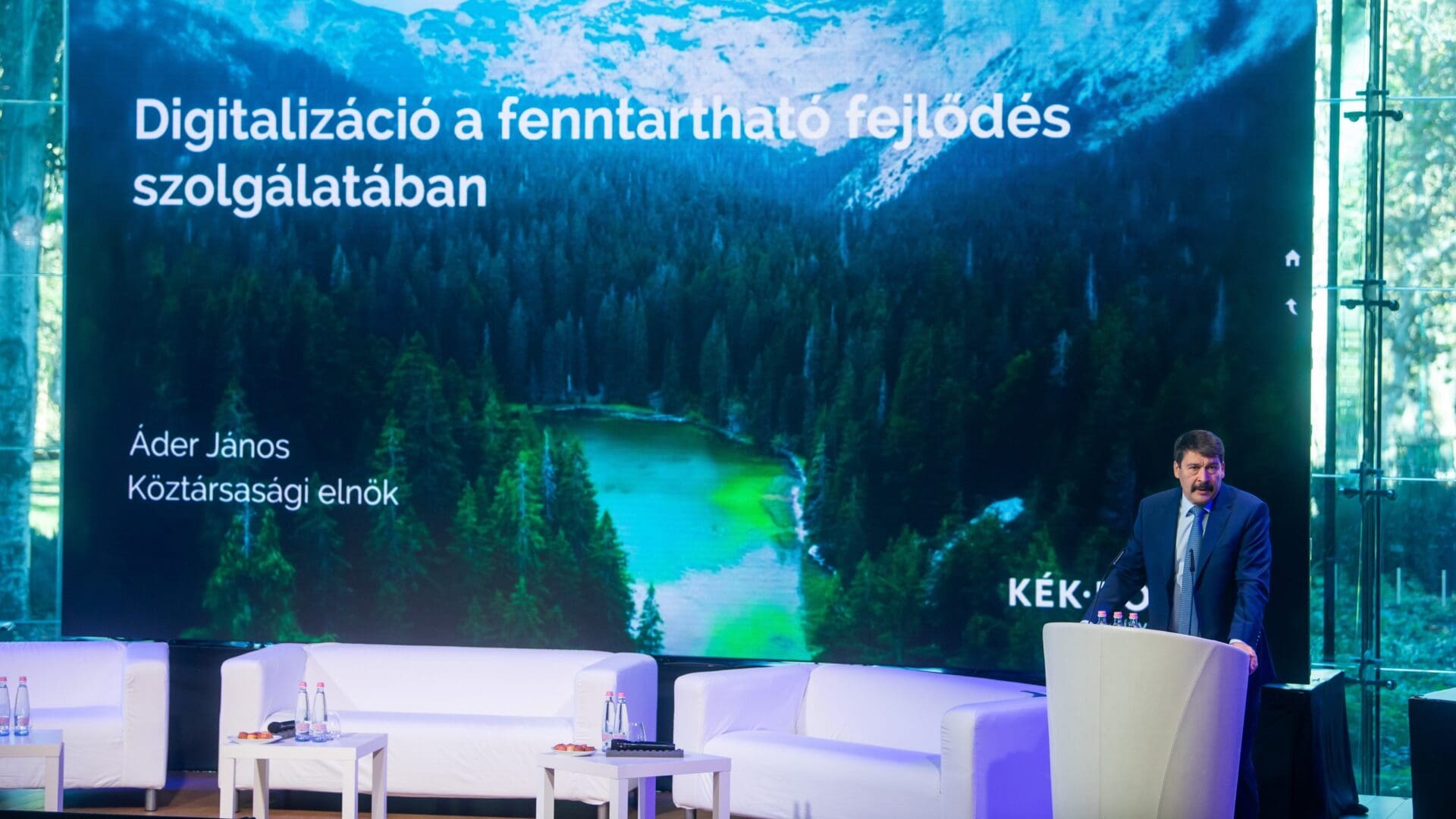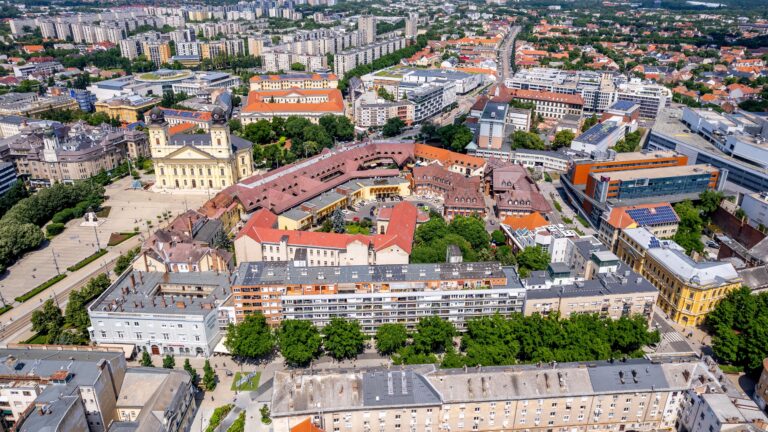János Áder, former President of Hungary and Chairman of the Blue Planet Climate Foundation, spoke at the Business-IT Conference in Budapest on Monday. He emphasized the need to enhance energy efficiency, reduce water usage, and increase recycling in the information technology and telecommunications industry.
In his presentation titled ‘Digitalization in Service of Sustainable Development,’ Áder pointed out that the National Digitalization Strategy set the goal for the widespread adoption of technologies and the expansion of capabilities by the government. According to the strategy, by 2030, 95 per cent of households will be covered by a gigabit-capable network.
He explained that the strategy’s primary objective is to surpass the European Union’s digital development average by the middle of the decade and place Hungary among the top ten leading EU economies by 2030. Achieving these goals requires energy, while energy consumption has tripled in relation to population growth, and water consumption has doubled, leading to increased environmental pollution. Currently, global energy consumption is linked to digitization, accounting for ten per cent of the total.
International researchers predict a more than 200 per cent increase in energy consumption in the digital sector by 2030.
Áder highlighted that in 2021, the amount of e-waste on Earth reached 57 million tons, which is greater than the total mass of the Great Wall of China, with only 17 per cent of it being recycled. Efficient recycling methods for electronic devices need to be developed in the industry. He pointed out that 1 ton of mobile phones contain 150 times more gold than 1 ton of rocks. He stressed that it is essential to improve the energy efficiency of the industry, reduce water usage, optimize material consumption, and increase recycling, and the government should facilitate adaptation to these changes. At the Planet Budapest 2023 sustainability expo, the best and newest Hungarian solutions were showcased.
Balázs Vinnai, President of the Hungarian Association of IT Companies (IVSZ), discussed how artificial intelligence (AI) could increase European productivity by 11-37 per cent by 2035, according to a report by the European Parliament. This growth is not limited to the technology sector but applies to any industry. He mentioned that Hungary lags behind in the digitalization of SMEs, which offers an opportunity for improvement. At the same time,
the popularity of IT education is increasing, with a nearly 31 per cent rise in the number of applicants
for higher education in the field compared to the previous year, which could help alleviate the shortage of IT professionals.
The conference brings together representatives of the Hungarian IT and telecommunications sector, including business decision-makers and government officials, with more than 350 experts and 30 speakers. The event focuses on global brands’ Hungarian subsidiaries (Canon, Samsung Electronics, SICK, Samsonite, HP, ALEF, Asus, Nokia, Lenovo, IBM, Dell, Fujitsu, AWS) and the most significant players in the industry, covering software, hardware, infrastructure, consulting, and regulatory aspects.
Related articles:








